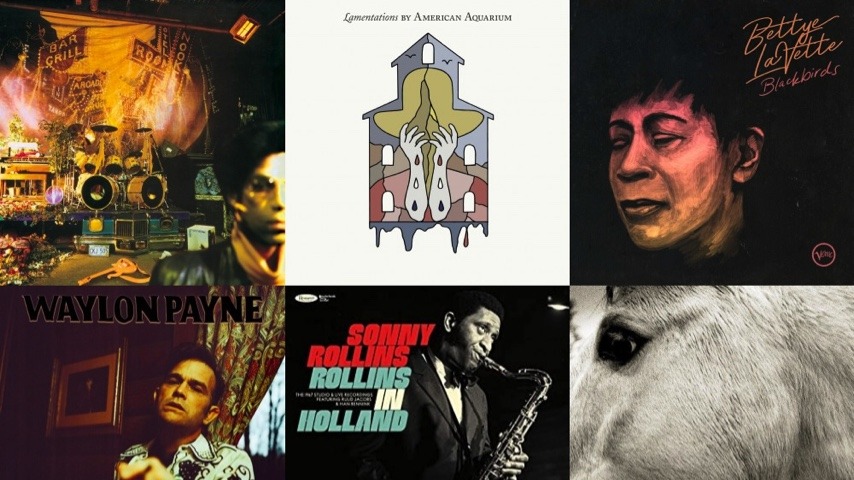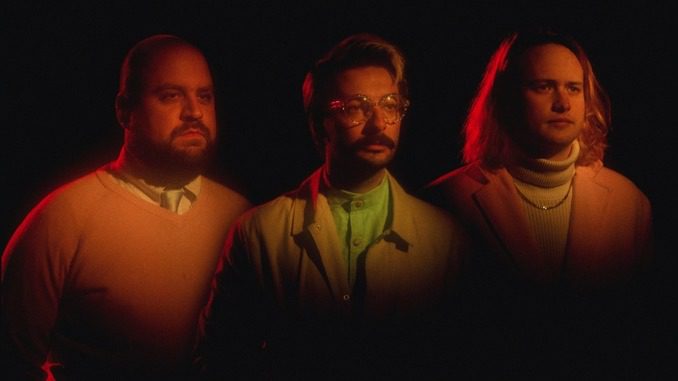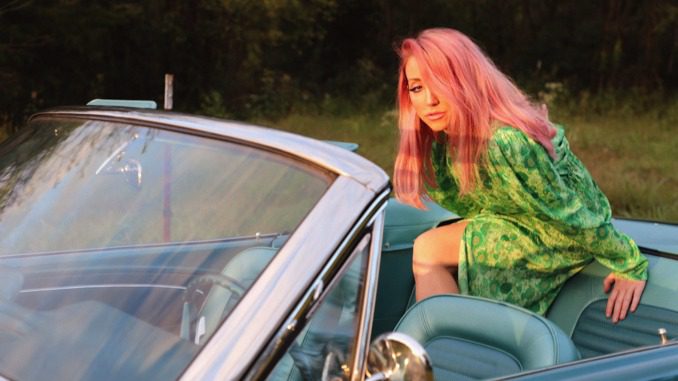When we assess the best music of a particular year, we’re not always considering music made in that year. There’s usually a time lag between the writing of a song and the recording of it, and then between the recording and release. When the album is finally released, what you’re hearing is not a snapshot of how the artist is feeling now but of how the performer was feeling at some point in the past.
Streaming technology has made it possible to narrow that gap; theoretically you can record something one day and post it on the net the next, but it usually doesn’t work that way. Both artists and their labels like to mix and remix the music, then set up the release of an album with singles for fans and radio and advance copies for the media. Depending on the record company’s promotional strategy, that lapse can be anywhere from a month to three years.
Thus, if a recording is released in October 2020, as Sam Smith’s Love Goes was, it might include tracks from 2018. It might reflect the heartbreaks and reflections of that year, rather than the present one.
If that’s true, shouldn’t a Prince box set of unreleased recordings from 1980-1987 or Joni Mitchell box set of unreleased recordings from 1963-1967 be considered as much a new album in 2020 as Smith’s unreleased recordings from 2018-2019? That’s the approach I took to drawing up my list of the 100 best albums of 2020, which is appended below.
You could object that Mitchell’s demos and radio shows from the years before her first studio album aren’t new in the way that Smith’s are. These aren’t just different years; they’re different eras. And you would be right. But I will respond that the public can’t react to music until it’s made available to them, and our first chance to engage with this unreleased music from Prince and Mitchell was in 2020. In that sense, it’s new music.
After all, music isn’t finished until it has interacted with an audience. The writing and the recording of a song are just the preliminaries in the musical event. The experience isn’t complete until the music connects with a group of listeners and evokes an emotional response. Maybe that response is what the artist intended and maybe it’s not. But that reaction is the whole point of music-making, which is fragmentary without it.
When Prince, Mitchell or Smith write a song about romantic desire, what’s important is not what the song says about the artist but what the song says about the listener. If they record a song about being attracted to a teacher, a drummer, a philanderer or some other inappropriate object of desire, it doesn’t matter who that person was in their lives. What matters is who that person is in the listener’s life—and how that listener deals with those feelings. If the song succeeds, it succeeds because it helps that listener to clarify and channel those same emotions.
In the streaming era, the question always arises: Do reissue albums make any sense? If you can pluck any song from any prior release to make your own playlist, why do you need a record company to assemble a greatest-hits collection? And it’s true, those Best of… anthologies don’t serve a purpose and seem to be disappearing.
On the other hand, it does make sense to reveal an under-documented era of an artist’s career by combining unreleased and poorly distributed performances with officially released tracks to tell the complete story for the first time. You can’t tell that story with just one or two tracks; you need dozens to paint the full picture. When you add some decent liner notes, you have an experience that you can only get from a box set.
Most box set reissues are either interesting footnotes to major careers or useful summations of minor careers. But a few are different. They add a major chapter, previously unavailable, of a major career. And that happened five times in 2020, as Prince, Sonny Rollins, Joni Mitchell, Harry Smith and Bobby Bare all had their musical histories reshaped by crucial new releases.
When Prince was working on his 1987 album Sign o’ the Times, he recorded three times as much music as he actually released and half of what he did release was relegated to B sides and dance mixes. Most of what he left in the “Vault” was as good as what came out. As a result, you can’t have an accurate assessment of Prince’s early-’80s music without hearing the missing two thirds. Now you can on Sign o’ the Times Super Deluxe Edition. And what an immense pleasure it is.
After releasing eight albums in the five years from 1962 through 1966, saxophonist Sonny Rollins didn’t release any from 1967 through 1971. And it wasn’t because his powers had diminished in any way. That’s obvious from the 2020 box set, Rollins in Holland. During a 1967 tour of that nation, Rollins teamed up with a local rhythm section (drummer Han Bennink and bassist Ruud Jacobs) for a handful of live and studio sessions.
The results are revelatory. Rollins had perfected a thick, sonorous tone on his tenor sax that he could control as if the horn was a plane and he were the pilot, swooping high and low, darting here and there. The chemistry between Bennink and Rollins was incendiary, with each pushing the other beyond his usual boundaries.
Mitchell’s Archives, Vol. 1: The Early Years [1963-1967] are just as revealing. She wasn’t at the height of her powers, as Prince and Rollins were, but these early recordings document how she gathered those powers year by year, even month by month. In late 1964, she’s still singing traditional folk songs in an overly sweet soprano. By the summer of 1965, she’s writing original songs like “Urge for Going.” By 1966, she’s performing “The Circle Game” and “Night in the City” in a tart soprano at a Philadelphia coffeehouse.
By 1967, she’s singing “Both Sides Now” on a radio show, and that fall she delivers an impressively confident show at an Ann Arbor coffeehouse, proving that she’s more than ready for the big career right around the corner. That show is also available separately as a two-CD set, Live at Canterbury House 1967. But only if you listen to the entire box set can you grasp Mitchell’s rapid evolution and enjoy all of the 30 songs never released on an official Joni Mitchell album in the 20th century.
The songs on another box set, Harry Smith—The B Sides, have all been released, but they were put out on 78s between 1926 and 1933. Most of these tunes have been unavailable ever since, so they should be considered as new music as much as the Prince or Smith albums. Folklorist Harry Smith was famous for compiling American Folk Music, from his personal collection of 1926-1933 blues, gospel, folk, Cajun and string-band 78s, for a six-LP box set released in 1952 for Folkways Records.
The set had a huge impact on the folk-revival musicians of the ’50s and ’60s, not least on Bob Dylan. It created a big stir again when it was released on six CDs as The Anthology of American Folk Music by the Smithsonian in 1997. Dust-to-Digital Records had the inspired idea to go back to the original 78s and find the song that was on the other side of each song Smith chose for his anthology. The result is Harry Smith—The B Sides, proof that the well of staggering music from that era is deeper than anyone thought.
The box set Bobby Bare Sings Shel Silverstein Plus contains mostly previously released material, but it does unveil for the first time his legendary lost album, Great American Saturday Night, which is also available separately. But it’s the box that tells the whole story of the unlikely but extremely fruitful collaboration between Bobby Bare, a country star raised on the north bank of the Ohio River, and Shel Silverstein, a hipster raised in a Jewish neighborhood in Chicago.
But Bare recorded 119 songs written by Silverstein, and a dozen of them were top-30 country singles, including Bare’s only chart-topper, 1974’s “Marie Laveau.” All 119 of those songs are included in the new eight-CD box set, which also includes 19 contemporaneous tracks by other songwriters. The background story, detailed in a 128-page hardcover book in the box, is almost as strange and funny as the songs themselves.
Of course, a lot of terrific music that was made in last few years was also released in 2020. Some acts, such as the Drive-By Truckers, Taylor Swift, Dave Alvin and Darrell Scott took advantage of all their downtime during the pandemic to each release two full albums of good music in 2020. Sam Smith put out Love Goes, one of the best R&B heartbreak albums of all time. Waylon Payne, the son of Sammi Smith and Jody Payne, emerged from the shadows of Nashville legend to deliver his first properly released album, Blue Eyes, the Harlot, the Queer, the Pusher & Me, a record good enough to justify the myth-making.
American Aquarium proved that they had grown up a lot since their callow indie-rock days to craft a moving Americana album, Lamentations. Australia’s grandmaster singer-songwriter Paul Kelly made an elegant voice-and-piano album, Please Leave Your Light On. Katie Crutchfield, working again as Waxahatchee, released her rootsiest, best album yet, Saint Cloud.
The magnificent country singer Chris Stapleton released the best solo album of his career by getting some crucial outside songwriting help. Stapleton’s former band, the Steeldrivers, made my favorite bluegrass album of the year, Bad for You. My favorite classical album was Eighth Blackbird’s Singing in the Dead of Night. My favorite hip-hop records of 2020 were Run the Jewels’ RTJ4 and DJ Shadow’s Our Pathetic Age.
Even in the most depressing year of our lives—a year of plague, fire, floods, murder and treason—there was solace to be found in music never available before, whether it was recorded in 1926 or 2020.
My 100 Favorite Albums of 2020:
These are my 100 favorite albums of newly released music in 2020, whether the music was recorded recently or not. If I wrote about the album for Paste, a link to my writing is included.
1. Prince: Sign o’ the Times Super Deluxe Edition (Rhino)
2. Sonny Rollins: Rollins in Holland (Resonance)
3. The Drive-By Truckers: Unraveling, The New OK (ATO)
4. Bob Dylan: Rough and Rowdy Ways (Columbia)
5. Various Artists: Harry Smith—The B Sides (Dust to Digital)
6. Rudresh Mahanthappa: Hero Trio (Whirlwind)
7. Sam Smith: Love Goes (Capitol)
8. Bonny Light Horseman: Bonny Light Horseman (37d03d)
9. Joel Ross: Who Are You? (Blue Note)
10. Joni Mitchell: Archives, Vol. 1: The Early Years [1963-1967], Live at Canterbury House 1967 (Rhino)
11. Charles Lloyd: 8: Kindred Spirits (Live from the Lobero) (Blue Note)
12. Bettye LaVette: Blackbirds (Verve)
13. Waylon Payne: Blue Eyes, the Harlot, the Queer, the Pusher & Me (Carnival)
14. American Aquarium: Lamentations (New West)
15. Steve Earle: Ghosts of West Virginia (New West)
16. Chris Stapleton: Starting Over (Mercury)
17. Taylor Swift: Folklore (Republic)
18. Ashley McBryde: Never Will (Warner Bros. Nashville)
19. Mickey Guyton: Bridges (Capitol)
20. Gregory Porter: All Rise (Blue Note)
21. Bobby Bare: Bobby Bare Sings Shel Silverstein Plus, Great American Saturday Night (Bear Family)
22. Paul Kelly/Paul Grabowsky: Please Leave Your Light On (Cooking Vinyl/Gawd Aggie)
23. Matthew Shipp: The Unidentifiable, The Piano Equation,
24. Lafayette Gilchrist Now (Gilchrist)
25. Elvis Presley: Elvis in Nashville (RCA/Nashville)
26. Kyle Nix: Lightning on the Mountain & Other Short Stories (Soundly)
27. Dave Alvin: From an Old Guitar, Third Mind (Yep Roc)
28. Waxahatchee: Saint Cloud (Merge)
29. Geof Bradfield Ben Goldberg Dana Hall Trio General Semantics (Delmark)
30. Low Cut Connie: Private Lives (Contender)
31. The Eighth Blackbird: Singing in the Dead of Night (Cedille)
32. Courtney Marie Andrews: Old Flowers (Mama Bird)
33. Aloe Blacc: All Love Everything (BMG)
34. The Wood Brothers: Kingdom in My Mind (Wood Bros.)
35. Matthew Shipp: The Unidentifiable, The Piano Equation,
36. Elvis Presley: Elvis in Nashville (RCA/Nashville)
37. Dave Alvin: From an Old Guitar, Third Mind (Yep Roc)
38. Waxahatchee: Saint Cloud (Merge)
39. Geof Bradfield Ben Goldberg Dana Hall Trio General Semantics (Delmark)
40. The Susan Alcorn Quintet: Pedernal (Relative Pitch)
41. Jerry Joseph: The Beautiful Madness (Cosmo Sex School)
42. Gilfema: Three (Sounderscore)
43. Carla Bley/Andy Sheppard/Steve Swallow: Life Goes On (ECM)
44. Kat Edmonson: Dreamers Do (Spinnerette)
45. Run the Jewels: RTJ4 (RTJ)
46. Christian Scott Atunde Adjuah: Axiom (Stretch)
47. Willie Nelson: The First Rose of Spring (Legacy)
48. Phoebe Bridgers: Punisher (Dead Oceans)
49. John Moreland: LP5 (Old Omens/Thirty Tigers)
50. Artemis: Artemis (Blue Note)
51. Immanuel Wilkins: Omega (Blue Note)
52. Brian Fallon: Local Honey (Lesser Known)
53. The Japandroids: Massey Fucking Hall (Anti-)
54. Bill Frisell Valentine (Blue Note/Decca)
55. Darrell Scott: Jaroso, Sings the Blues of Hank Williams (Full Light)
56. Lori McKenna: The Balladeer (CN)
57. The Dayna Stephens Quartet: Right Now! Live at the Village Vanguard (Contagious)
58. Eric Revis Slipknots Through a Looking Glass (Pyroclastic)
59. The Steeldrivers: Bad for You (Rounder)
60. Sam Amidon: Sam Amidon (Nonesuch)
61. The Chicks: Gaslighter (Columbia)
62. Sun Ra Arkestra Swirling (Strut)
63. Maria Schneider Data Lords (ArtistShare)
64. Jason Isbell: Reunions (Southeastern)
65. DJ Shadow: Our Pathetic Age (Mass Appeal)
66. Brandy Clark: Your Life Is a Record (Warner)
67. Fred Hersch: Songs from Home (Palmetto)
68. The Nude Party: Midnight Manor (New West)
69. Little Big Town: Nightfall (Capitol Nashville)
70. Micah Thomas Trio: Tide (21804)
71. Old Crow Medicine Show: Live at the Ryman (Columbia)
72. Michael Thomas: Event Horizon (Giant Steps)
73. Harry Styles: Fine Line (Columbia)
74. X: Alphabetland (Fat Possum)
75. The Pretenders: Hate for Sale (BMG)
76. Shemekia Copeland: Uncivil War (Alligator)
77. Jim Lauderdale: When Carolina Comes Home Again (Yep Roc)
78. The Steep Canyon Rangers: North Carolina Songbook (Yep Roc)
79. Hayes Carll: Alone Together Sessions (New West)
80. Margo Price: Perfectly Imperfect at the Ryman, That’s How Rumors Get Started (Loma Vista)
81. Toronzo Cannon: The Preacher, the Politician and the Pimp (Alligator)
82. Jimmy Johnson: Every Day of Your Life (Delmark)
83. Gretchen Peters: Dancing with the Beast (Scarlet Letter)
84. The Silkwood Ensemble: Osvaldo Goligov: Falling Out of Time (In a Circle)
85. Elvis Costello & the Imposters: Look Now, Hey Clockface, Purse (Concord)
86. Seamus Egan: Early Bright (THL)
87. Laura Veirs: My Echo (Raven Marching Band)
88. Matt Wilson Quartet: Hug! (Palmetto)
89. The Flat Five: Another World (Pravda)
90. Teodross Avery: Harlem Stories: The Music of Thelonious Monk (WJ3)
91. John Anderson: Years (Easy Eye)
92. Jim Lauderdale: When Carolina Comes Home Again (Yep Roc)
93. David Bromberg Band: Big Road (Red House)
94. Alecia Nugent: The Old Side of Town (Hillbilly Goddess)
95. Various Artists: Willie Nile Uncovered (Paradiddle)
96. Clipping: Visions of Bodies Being Burned (Sub Pop)
97. Don Bryant: You Make Me Feel (New West)
98. Fantastic Negrito: Have You Lost Your Mind Yet? (Cooking Vinyl) https://www.pastemagazine.com/music/prince/the-prince-is-dead-long-live-the-prince/
99. Devon Gilfillian: Black Hole Rainbow)
100. Monty Warden and the Dangerous Few: Monty Warden and the Dangerous Few (Break a Leg)



